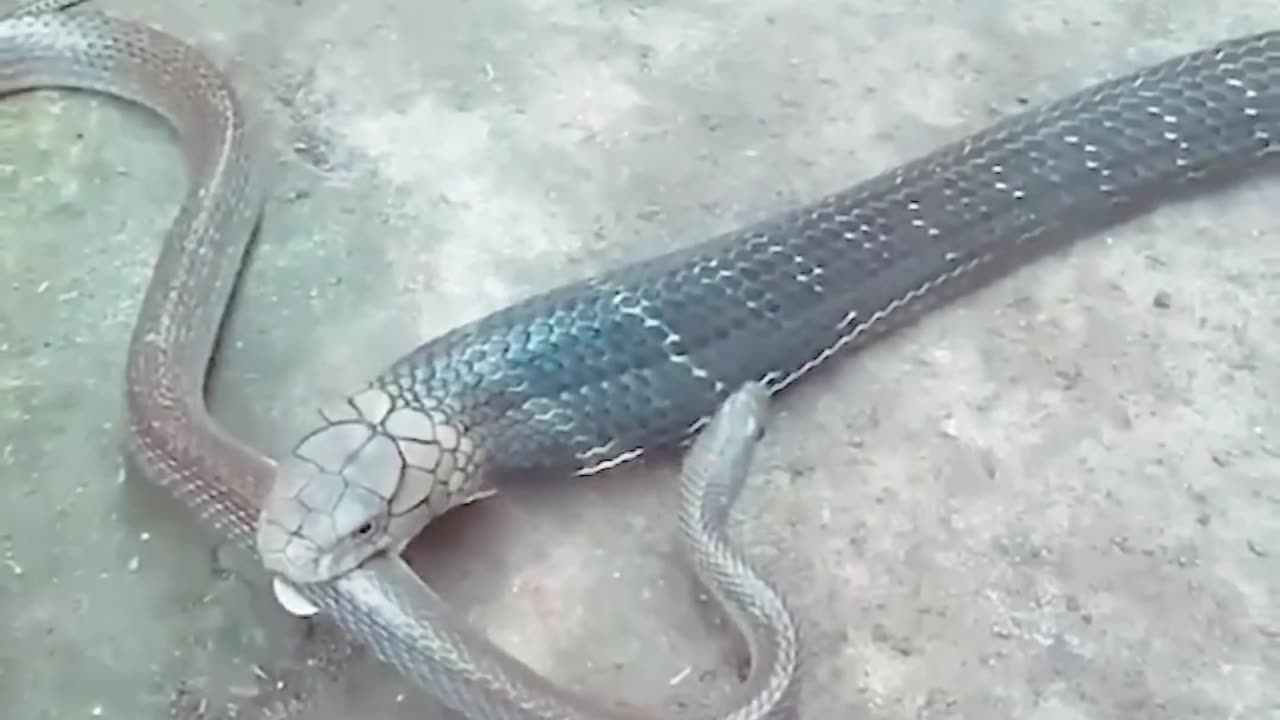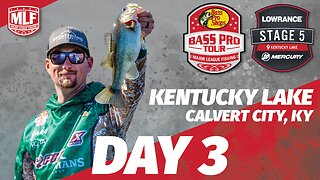Premium Only Content

Snake Lover's & care'
Taking care of a pet snake involves creating an environment that mimics its natural habitat, providing proper nutrition, maintaining hygiene, and ensuring its overall well-being. Here are some essential aspects to consider for snake care:
Habitat:
Enclosure: Choose an appropriately sized enclosure with enough space for the snake to move comfortably.
Substrate: Use suitable bedding (substrate) such as aspen shavings, cypress mulch, or paper towels, depending on the snake species.
Temperature: Maintain a gradient in temperature within the enclosure (hot side and cool side) using heat lamps or heating pads. This allows the snake to regulate its body temperature.
Humidity: Ensure the enclosure maintains the appropriate humidity level required for your snake species. Mist the enclosure or use a humidifier as needed.
Feeding:
Diet: Offer a diet consisting of appropriately sized prey items. Snakes are carnivorous, and their diet varies based on species—rodents, insects, or other small animals.
Feeding Schedule: Establish a feeding schedule according to the snake's age and species. Young snakes generally eat more frequently than adults.
Monitoring: Keep an eye on feeding behavior and adjust the prey size accordingly to prevent overfeeding or underfeeding.
Health and Handling:
Regular Check-ups: Schedule regular vet check-ups to ensure the snake's health and address any issues promptly.
Handling: Handle your snake gently and properly to avoid stress or injury. Learn the proper technique for handling your specific snake species.
Observation: Observe your snake for any signs of illness, stress, or abnormal behavior (like refusing food or excessive hiding).
Maintenance:
Cleaning: Regularly clean the enclosure—remove waste, shed skin, and any uneaten food to maintain hygiene.
Water: Provide fresh, clean water in a shallow dish. Change it regularly to prevent contamination.
General Tips:
Research the specific requirements of your snake species as different species have varying needs.
Avoid sudden changes in the environment as this can stress the snake.
Be cautious and knowledgeable about handling venomous snakes—if you have one, take necessary precautions and seek professional advice.
Regularly educate yourself on snake care, especially if you're a new owner or have a new species. Each snake has its own specific needs, so it's crucial to understand and cater to those requirements for their well-being.
Taking care of a pet snake involves creating an environment that mimics its natural habitat, providing proper nutrition, maintaining hygiene, and ensuring its overall well-being. Here are some essential aspects to consider for snake care:
Habitat:
Enclosure: Choose an appropriately sized enclosure with enough space for the snake to move comfortably.
Substrate: Use suitable bedding (substrate) such as aspen shavings, cypress mulch, or paper towels, depending on the snake species.
Temperature: Maintain a gradient in temperature within the enclosure (hot side and cool side) using heat lamps or heating pads. This allows the snake to regulate its body temperature.
Humidity: Ensure the enclosure maintains the appropriate humidity level required for your snake species. Mist the enclosure or use a humidifier as needed.
Feeding:
Diet: Offer a diet consisting of appropriately sized prey items. Snakes are carnivorous, and their diet varies based on species—rodents, insects, or other small animals.
Feeding Schedule: Establish a feeding schedule according to the snake's age and species. Young snakes generally eat more frequently than adults.
Monitoring: Keep an eye on feeding behavior and adjust the prey size accordingly to prevent overfeeding or underfeeding.
Health and Handling:
Regular Check-ups: Schedule regular vet check-ups to ensure the snake's health and address any issues promptly.
Handling: Handle your snake gently and properly to avoid stress or injury. Learn the proper technique for handling your specific snake species.
Observation: Observe your snake for any signs of illness, stress, or abnormal behavior (like refusing food or excessive hiding).
Maintenance:
Cleaning: Regularly clean the enclosure—remove waste, shed skin, and any uneaten food to maintain hygiene.
Water: Provide fresh, clean water in a shallow dish. Change it regularly to prevent contamination.
General Tips:
Research the specific requirements of your snake species as different species have varying needs.
Avoid sudden changes in the environment as this can stress the snake.
Be cautious and knowledgeable about handling venomous snakes—if you have one, take necessary precautions and seek professional advice.
Regularly educate yourself on snake care, especially if you're a new owner or have a new species. Each snake has its own specific needs, so it's crucial to understand and cater to those requirements for their well-being.
-
 1:29:44
1:29:44
UnchartedX
5 days agoObelisks, Witness Marks and 1000-ton Statues! Karnak Temple Walk and Talk
35.8K17 -
 LIVE
LIVE
SynthTrax & DJ Cheezus Livestreams
4 hours agoMario Kart 8 Deluxe - Nintendo Switch It Up Saturdays 4pm PST / 7pm EST
110 watching -
 22:24
22:24
MYLUNCHBREAK CHANNEL PAGE
12 hours agoHoover Dam Wasn’t Built for You
67.5K57 -
 LIVE
LIVE
mrsZWOGs
1 hour ago🟢✨ GIRLS NIGHT WITH MISSES MAAM! - Variety gaming with my Rumble Wife - Come hang!
77 watching -
 LIVE
LIVE
Jorba4
5 hours ago🔴Live-Jorba4- The Division 2. (It's been a while)
39 watching -
 41:36
41:36
Tactical Advisor
4 hours agoBudget 50 Cal Sniper Rifle?! | Vault Room Live Stream 027
25.7K12 -
 LIVE
LIVE
Major League Fishing
4 days agoLIVE! - Bass Pro Tour: Stage 5 - Day 3
550 watching -
 1:29:45
1:29:45
Michael Franzese
7 hours agoTrump vs. Elon, the EV Bill, and Biden’s Autopen Scandal | LIVE
72.2K43 -
 LIVE
LIVE
Spartan (Pro Halo esports Player)
2 hours agoRanked Arena then Swtor later on
58 watching -
 3:45:35
3:45:35
GamerGril
5 hours agoCommunity Bingo With ☠ Doom Gal☠
10.9K3